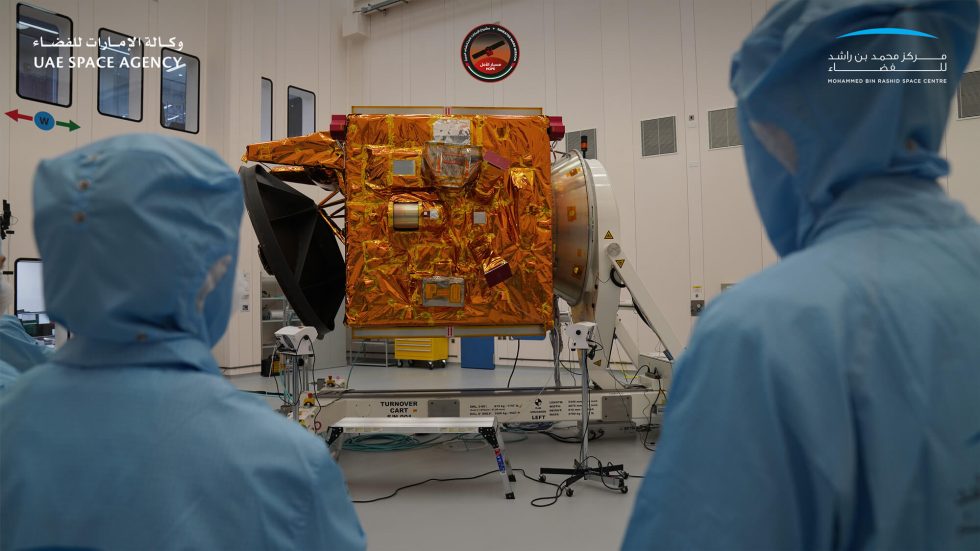On Sunday, a Japanese-built rocket launched a 1.35-ton probe sponsored by the United Arab Emirates into low-Earth orbit. The spacecraft is now on its way toward Mars, where it is intended to enter orbit around the Red Planet in February, 2021.
The "Mars Hope" mission represents a partnership between the Arab country—which seeks to inspire a future generation of scientists and engineers—and several US academic institutions, including the University of Colorado Boulder. The program was managed in the United Arab Emirates, and the spacecraft was built in a laboratory in Colorado.
"This is a huge leap forward for the UAE's ambitious space program," Ahmad bin Abdullah Humaid Belhoul Al Falasi, chair of the UAE Space Agency, said after the launch. "The mission is a catalyst that has already served to significantly accelerate the development of the UAEs space, education, science and technologies sectors."
The orbiter will bring three scientific instruments to Mars designed to study the Martian atmosphere. During a news conference prior to Sunday's launch, Sarah Bint Youssef Al-Amiri, the deputy director of the mission, said the goal is to better understand weather systems on Mars. The probe will focus on day-to-night transitions and understanding how far oxygen and hydrogen from the planet's thin atmosphere extend into outer space.
The scientific data collected by the Hope mission should indeed help fill in some gaps in scientific knowledge about Mars, if the probe successfully enters orbit around Mars. But it is clear that the UAE sponsored the $200 million mission as a point of inspiration for the country's younger people.
"We want to send a message to youth," said Omran Sharaf, the project's director. "Its about the future of our economy, to inspire the younger generation to go into science, technology, engineering and medicine." The country has already seen a shift from university majors such as finance into the sciences, he said.


arstechnica
[contfnewc] [contfnewc]






